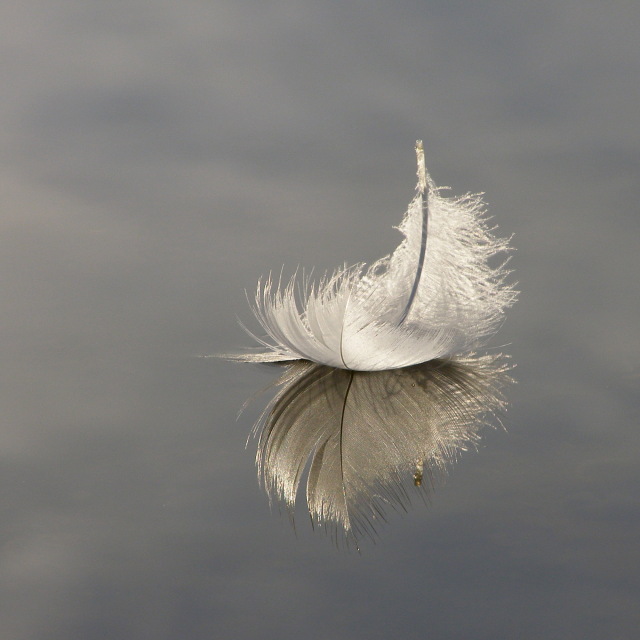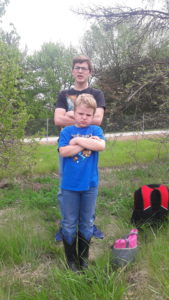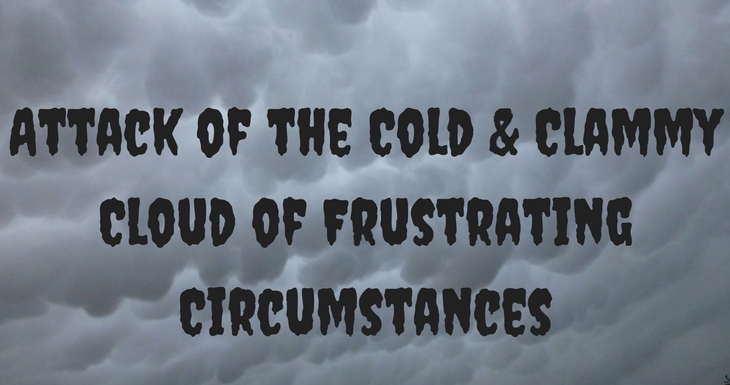
I have been very angry in recent weeks. Anger is the fruit of pain, and lately there has been no shortage of it. I will not bore the reader with my physical symptoms. I don’t write to whine. Needless to say there has been less sleep, more seclusion, and many questions—not the least of which is, why? What purpose could this pain possibly have?
I have found the things that normally comfort me dry and flavorless. Reading has not stemmed the pain. Prayer has not eased the pain. Music has not soothed the pain. And when pain is at its peak, sometimes we will do anything to stop it.
Last week I made a decision to eat in the hopes that I would find an inkling of relief. But the stomach will never be satisfied–nor will the soul–with the transient things in this world, because meaning is not found in nutrients. But as I consider my anger and the actions it provokes in me, I am learning that meaning will not be found in intense emotional outbursts (temper tantrums) either.
You may have noticed my last post mentioned Job from that old book, The Bible. But this blog is not an exposition on the man nor his friends. My search is always for me, for if I am to be utterly candid, I am the center of my world just as you are the center of yours. For no one can feel what I feel nor experience my experiences but myself, just as you cannot for even one moment lend me your tears.
Still, Job asks questions of God that are important.
“Have you eyes of flesh? Do you see as man sees?” Job 10:4
“Why did you bring me out from the womb?” Job 11:18
“Why do you hide your face and count me as your enemy?” Job 13:24
Job is nothing if not direct. He doesn’t ask casual question and he even goes so far as to demand answers. Circumstantially, I have little in common with Job, but at times I still ask the same questions.
Now maybe you are reading this and thinking, “Wow, Margaret! Heavy stuff! You’re bringing me down.” To which I respond, we are all down. Some of us are only further along in recognizing our true state.
I sat next to my grandmother’s bedside a few weeks ago. I had received a call that she was possibly near death after a massive heart-attack. I visited her for what felt like maybe the last time. She was in serious physical pain and unable to eat. My grandfather sat in a chair nearby and we conversed on several topics, not the least of which was the Bible I was holding in my hands. Because when things go bad in my life I carry it with me. Even if I don’t have the strength to read it, I hold it.
I read a passage to my grandfather that he inquired about and we discussed it. And then my grandmother, tired and weak, asked me a question, “Do you read your Bible often?”
“Every day.” I said.
And it’s true. But I didn’t tell her about all the days I read it and it doesn’t take away the pain. I didn’t tell her about the times (like that moment) when the Bible did not stop my sorrow. Or fear. Or anger. In hindsight, I must have appeared pious and holy, as if I never get angry with the author of my faith because my circumstances are not to my liking. Intense pain does this: it causes us to ask hard questions. That is why finding the correct answers is so darned important.
Because even though I believe the Bible is true, even though I believe there is a God who created hippo’s, crocodiles and human beings, I frequently doubt his goodness. The thing is, I sincerely want to believe that all things work together for good, but sometimes I can’t because I incorrectly associate my pain with the goodness of God, as if He is somehow dependent on how I feel about Him at any given moment. Pain does this too–it robs us of memories of the good times. I say that because in recent days I have forgotten what it felt like to feel okay.
And maybe that is why God’s answer to Job really ticks me off.
“Who has a claim against me that I must pay? Everything under heaven belongs to me.” (Job 41:11)
Sometimes I wish the God of the holy scriptures read more like the genie who is rubbed out of the bottle, “You’re wish is my command!”
I sometimes meet others who also feel this doubt in the midst of pain. They too quietly wonder where God is and why He lets their agonies continue. When I looked into the face of my grandmother—-one of the truly good people I know—-and watched her labored breath and pain-stricken face, I ached. Anesthetics, yes. Permanent healing? No. Because there is no cure for death. Somewhere in the tension of broken bodies, broken hearts, and resounding “no’s” I get a little stuck.
But I am learning something really important about discipline in this area: pain is not the end of the story.
If pain was the end of the story, Jesus never would have risen from the dead.
For that matter, the creator of the universe wouldn’t have left the throne room of Heaven and put on human(pain-filled) flesh. All of Job’s questions were answered in the response of the King of Heaven to our pain. He was called a Man of Sorrows. The Bible tells us He created the Universe. (Hebrews 1:1) But He too experienced hunger, sadness, loneliness, and grief. He attended weddings and funerals. And His drastic response to the problem of pain was to give the one thing that could save us all, his life.
So when I stand with my fists balled and stamp my feet at him, he gets it. And he lets me rage.
When I am angry enough to eat myself into a stupor…
When I am angry enough to run down to the motorcycle dealership and hop on a new bike so I can roar down the highway while cursing…
When I am angry enough to scream at my boys for bad grades and misbehavior and thoughtless shenanigans…
When I am angry enough to leave my husband and find a mate who doesn’t annoy me…
When I am angry enough to scream at the top of my lungs because I am sick to death of pain and suffering…
God is strong enough to handle my anger and loves me enough to listen and respond in love.
So when I have cried all the tears I can, and shouted all my anger out into the night, I find that He is still there… loving me and patiently waiting to take me into His arms and comfort me with His words.
In the stillness of that love, as I consider him being flogged…
As I consider the nails in his hands and feet…
As I consider the cross and each agonizing breath…
I stop raging, and I weep.
Jesus is nothing if not the God of hope. And hope defeats rage every time because hope defeats pain.
Amy Grant wrote a beautiful song that talks about this moment called, “After the Fire”. She says, “After the fire is over, after the ashes cool, after the smoke has blown away, I will be here for you.” And He will. Praise God, He always will! Because my anger is not the end of the story. He is. And the hope of Him gives me immense peace.

 So on the way home from church today when I heard a loud pop, I looked in the rearview mirror to see if we’d hit a rock. Nope. Nothing. All clear. Until the thumping and roaring started and I promptly pulled over to the side of the road feeling less than confident about the Michelin Man.
So on the way home from church today when I heard a loud pop, I looked in the rearview mirror to see if we’d hit a rock. Nope. Nothing. All clear. Until the thumping and roaring started and I promptly pulled over to the side of the road feeling less than confident about the Michelin Man.



